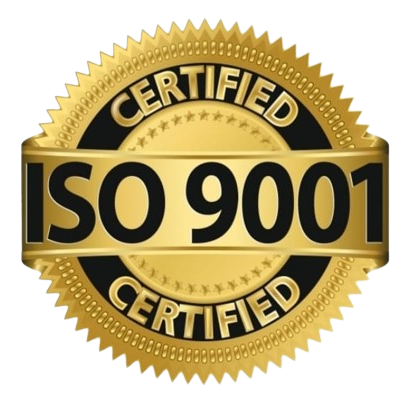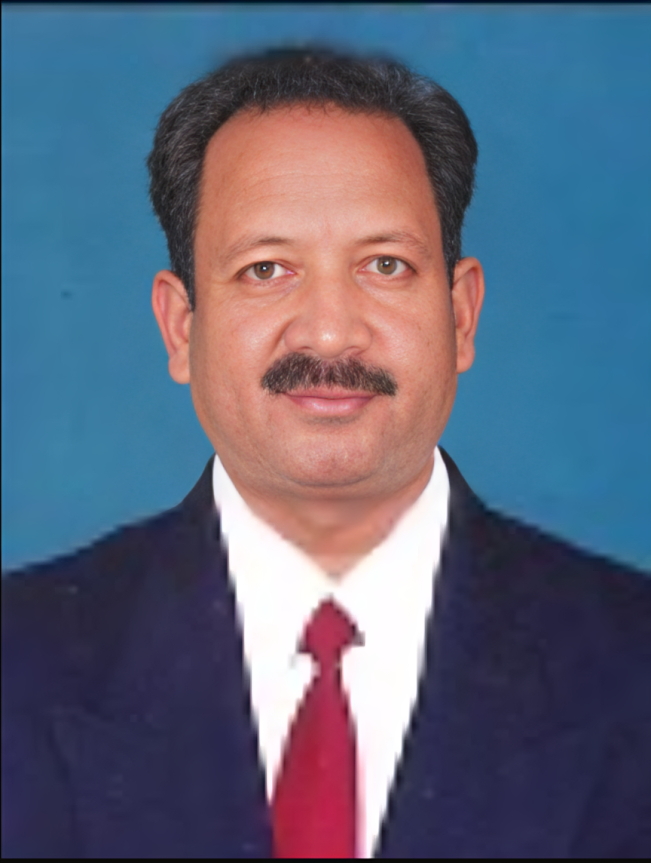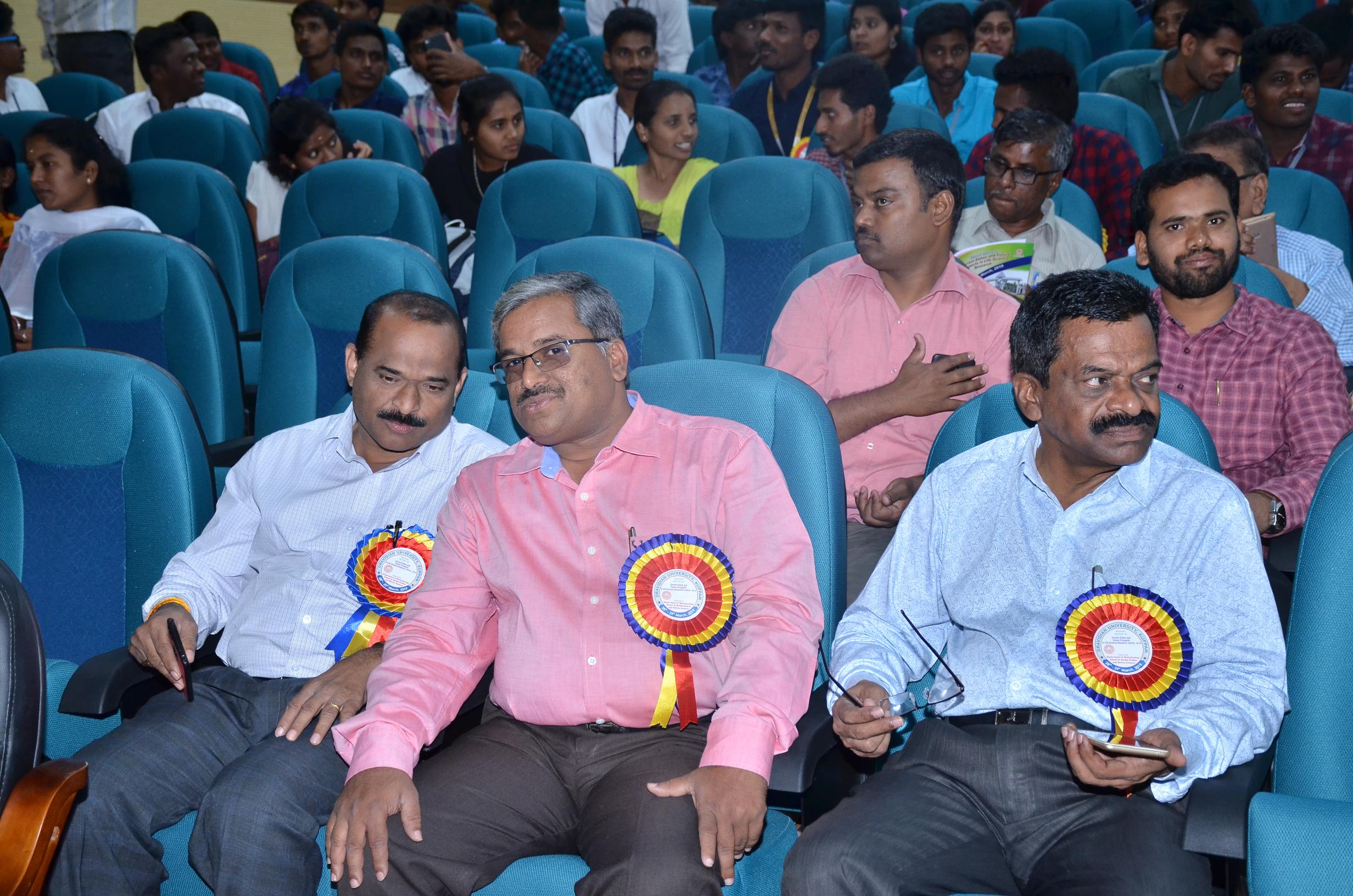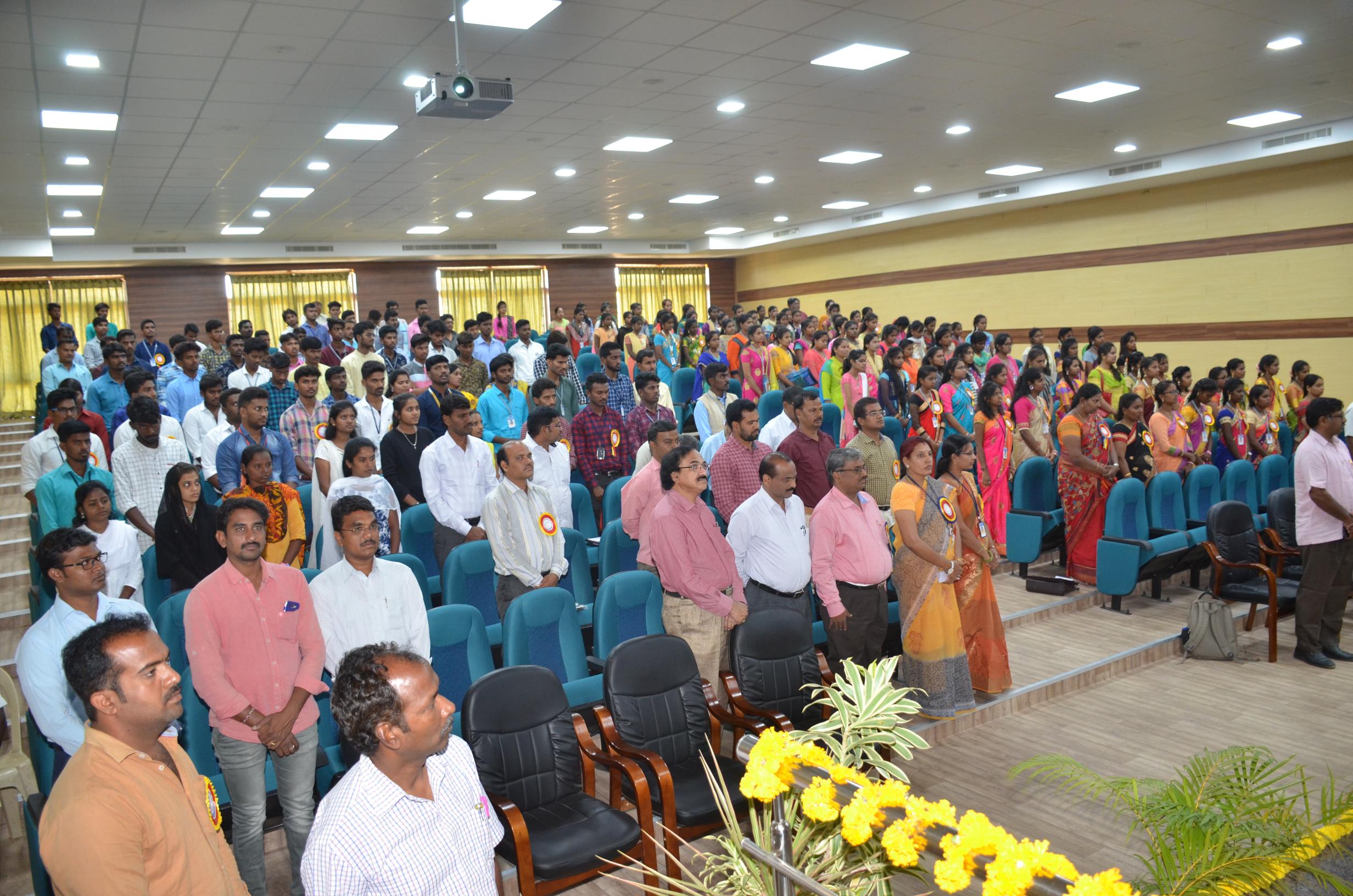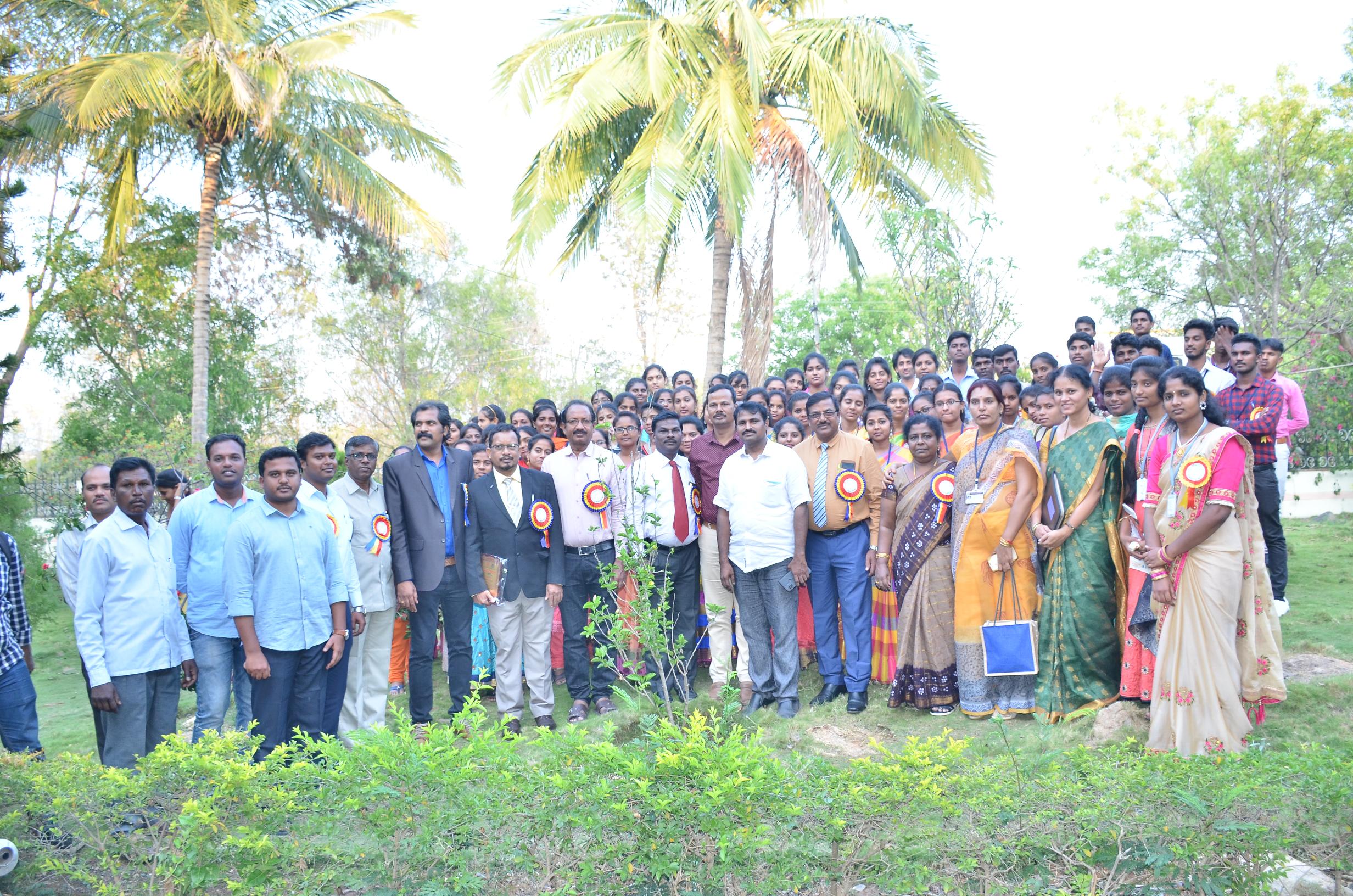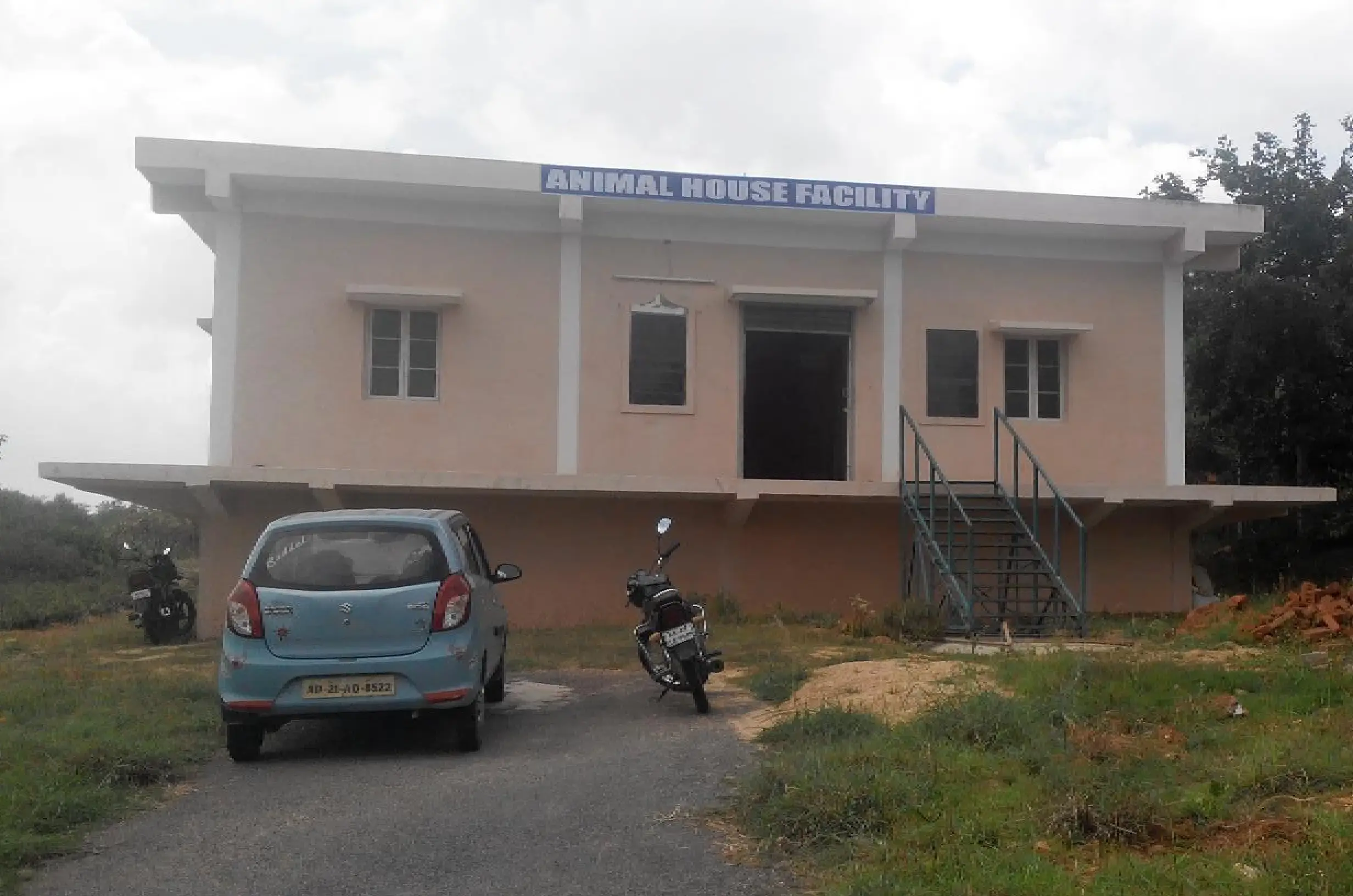
- About Department
- Mission & Vision
- Faculty
- Programmes
- Board Of Studies
- Research
- Seminar & Conference
- Scholars
- Others
About Department
The Dravidian University started the Department of Herbal Science in the year 2008 with seven regular faculty positions to start two year M.Sc. course on Herbal Science. The Department was started with seven faculty positions including Professor-1, Associate Professors-2, Assistant Professors-4 with multidisciplinary background to conduct the advanced research on Herbal Science.
The main objective to start this Herbal Science department is to protect, preserve, promote and conserve the endemic and endanged important Dravidian Herbal heritage for future generations to represent the Dravidian culture, language and civilization and to cure the various dredful diseases such as cancer, ulcer, jaundice, diabetes, paralysis, T.B. etc
The Department started research programmes leading to M.Sc. students dissertations, M.Phil. and Ph.D. research degrees. At present 25 research scholars are doing research on various areas of medicinal and aromatic plants. The faculty members received eight research projects from various funding agencies such as UGC, DST etc. The Department also received UGC Non-SAP to strengthen the infrastructural facilities of the Department for promoting advanced research on herbal science. The department so for four national seminars were conducted. Research papers were published in highly reputed national and international journals.
The Department developed 10 acres of medicinal plants garden representing Dravidian culture, language and civilization. The department also having advanced research laboratories and good animal house facility for conducting advanced experiments on animals by using herbal formulations.
The School of Herbal Studies and Naturo Sciences started the following departments during the academic year 2013-2014 on self financing basis namely 1) Biotechnology 2) Microbiology and 3) Zoology with a intake of 30 students each.
Mission & Vision
The department vision is to attain greater heights in Biotechnology research, shaping Biotechnology into a premier precision tool of the future for creation of wealth and ensuring social justice specially for the welfare of poor. Products and processes resulting from increasing knowledge generated through Life Science Research and application of techniques of Biotechnology will profoundly influence the existing paradigm of healthcare, agriculture, conservation and utilization of bioresources, production and manufacturing processes and reservation of environment.
Biotechnology is a frontline area of science with immense potential for the benefit of the human kind. The Department shall devote wholly to achieve excellence in the promotion of Biotechnology. The Department shall provide services in the areas of research, infrastructure, generation of human resource, popularization of biotechnology, promotion of industries.
Faculty
Prof. M. Mastan
M.Sc., Ph.D.
Professor
Clinical Biochemistry, Immunology & Cancer Biology
9949274182
mastanmadhav@gmail.com
Prof. Lokanatha Valluru
M.Sc., Ph.D.
Professor
Molecular Neuropharmacology , Cancer Biology & Animal Biotechnology
9652840923,9492640923
lokanath.valluru@gmail.com
Dr. B. Srinivas
M.Sc., B.Ed., Ph.D.
Associate Professor
.Plant Molecular Biology & Environmental Biotechnology .
9849494558
bathula_srinivas@yahoo.com
Dr. D. Sripriya
M.Sc., PGDPD, Ph.D.
Assistant Professor
Phytomedicine, Plant Pathology & Microbial Biotechnology
9000299691
sripriyashok13@gmail.com
Dr. S. Rajeswara Reddy
M.Sc., B.Ed., Ph.D.
Assistant Professor
Ethnopharmacology, Biochemistry, Free radical Biology & Diabetes-Oxidative stress.
9494297521
drrajeswarareddy@gmail.com,
Board Of Studies
From the academic year (2013-2014) Choice Based Credit System (CBCS) is introduced in all departments of the University. According to this system the M.Sc. Biotechnology Programme requires a student to earn 100 credits in four semesters. The Board of Studies in Biotechnology is approved course structure and CBCS syllabus of M. Sc Biotechnology for 1st, 2nd, 3rd, and 4th semester on 20th November 2019.
List Of Board Of Studies
Research Aspects
Seminars & Workshops
Number of Papers Presented in Seminars/ Conferences
Seminars/Conferences Organized
Ph.D Awardees / Pursuing
List of M.Phil. Awardees
List of Ph.D. Awardees
Pursuing Ph.D.
Facilities
3. Class Rooms: 07
4. E Class Room: 01
•Biotechnology Laboratory: LAF, Refrigerated centrifuges, hot plates, cyclo mixers and Autoclaves.
•Microbial Biotechnology laboratory: Refrigerated orbital shaking incubator, Hot air oven, Refrigerated centrifuge, Autoclave.
Bioinformatics Laboratory: Personal computers (24) with internet connection, LCD projector and screen.
•Animal Biotechnology Laboratory: Thermal cycler, Air conditioner (1) Spectrophotometer, Homogenizer, LAF, ELISA Reader, Trinocular Microscope.
•Plant Biotechnology laboratory: LAF, Air conditioner (1)
•Store Room: Chemicals, Glassware and Equipments.

